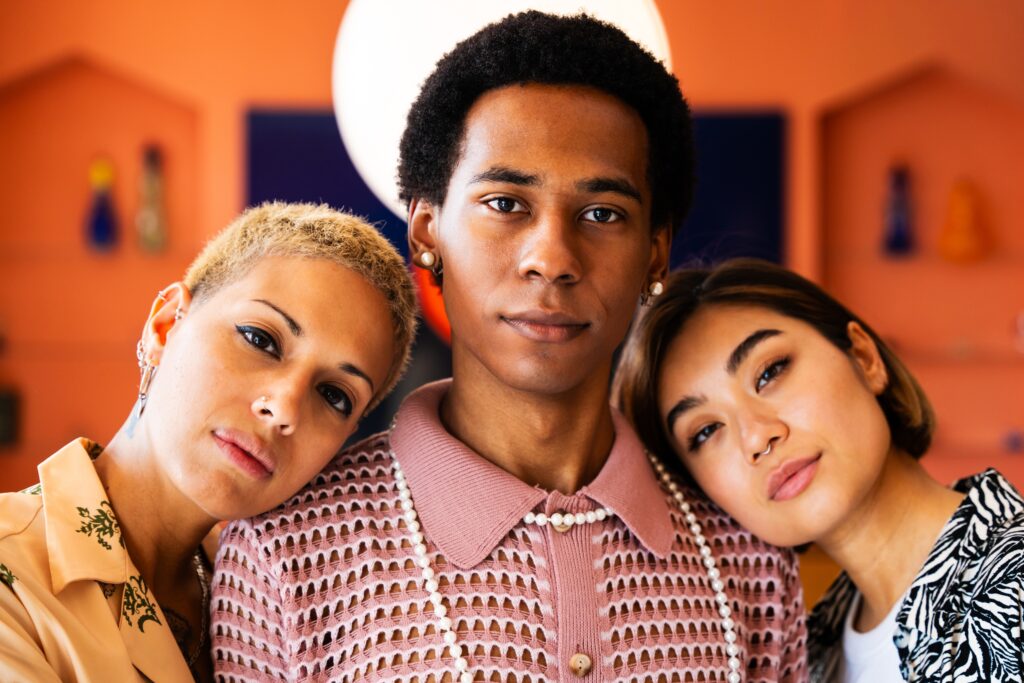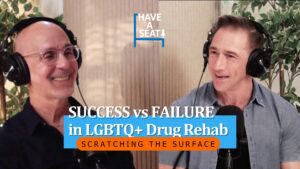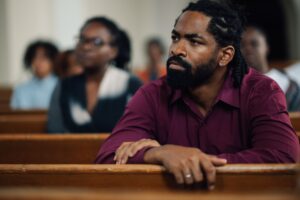Studies show that LGBTQ people are more than twice as likely to struggle with substance use compared to the general population. This is often due to challenges like discrimination, family rejection, and trauma. Sadly, many general rehab programs offer generic care that doesn’t address these topics. LGBTQ-focused programs are key to creating safe spaces where real healing can happen.
Discover the difference LGBTQ-affirming care makes. Call La Fuente at 323.464.2947.
What Makes LGBTQ Addiction Different
LGBTQ people face unique challenges that can make them more likely to struggle with substance use. External pressures like discrimination and rejection, along with internal struggles such as self-acceptance, often play a significant role.
- Minority stress: LGBTQ people often face discrimination, prejudice, and stigma because of their sexual orientation or gender identity. These challenges may lead some to turn to drugs or alcohol as a way to cope.
- Family rejection: When family members reject someone for being LGBTQ, it can cause feelings of loneliness and abandonment. This sense of isolation often drives people to use drugs or alcohol as a way to numb their pain or find temporary relief.
- Higher rates of trauma: LGBTQ individuals are more likely to experience physical, emotional, or sexual abuse. These traumatic experiences can create deep emotional pain and distress, leading many to turn to substances.
- Internalized homophobia/transphobia: Many LGBTQ people grow up hearing negative messages about their sexual orientation or gender identity, which can make it hard to accept who they are. This internal conflict can lead to serious mental health challenges, like depression or anxiety, that increase the risk of turning to substances for relief.
- Community-specific factors: Bars and clubs have historically been safe places for LGBTQ people to gather and connect. While these spaces provide a sense of belonging, they are often centered around drinking or drug use. This can make sobriety especially challenging, as socializing without substances may feel isolating or unfamiliar.
LGBTQ-Inclusive Rehab: Marketing vs. Reality
While some rehab centers genuinely cater to the needs of LGBTQ individuals, many rely on superficial marketing to appear inclusive without offering meaningful support. This gap between promises and reality can leave LGBTQ clients feeling unsupported, misunderstood, and at greater risk during recovery.
The rise of LGBTQ-inclusive marketing
Many rehab centers try to appear LGBTQ-inclusive with surface-level marketing. They might use LGBTQ-friendly language, pride flags, or a single testimonial or photo of a same-sex couple. Some even add terms like “LGBTQ-friendly rehab” or “gay addiction treatment” to their websites to rank higher in searches.
However, these efforts often lack real substance. Most of these centers don’t offer programs or staff trained to meet the unique needs of LGBTQ clients, leaving clients feeling unsupported and possibly worse off than when they started.
Red flags to watch for
- Lack of LGBTQ-trained staff: Few or no therapists and counselors with experience in LGBTQ-specific issues like minority stress or identity struggles.
- Generic programming: Advertised “gay and lesbian tracks” that offer no meaningful differences from general treatment programs.
- Misleading claims: Facilities that overstate their ability to serve LGBTQ clients without evidence of success.
- Minimal LGBTQ representation: Websites that rely on a single image or vague mention of LGBTQ inclusivity, without actual support systems in place.
The harm of deceptive marketing
Deceptive marketing can seriously disrupt the recovery process. For example, one gay client chose a facility because it advertised a “gay and lesbian track,” but quickly discovered the program was no different from the general treatment. Similarly, a shy young man seeking help was placed in a group with 14 heterosexual men, leaving him feeling isolated and unsupported in an environment that failed to meet his needs.
LGBTQ clients who don’t feel safe or understood may leave treatment early, losing progress and risking relapse. Worse, a negative experience can make them hesitant to seek help again.
Recovery depends on a safe, affirming space where individuals can share openly without fear of judgment. When facilities fail to deliver, it puts vulnerable people at greater risk.
What LGBTQ Rehab Offers That’s Different
General rehab often takes a one-size-fits-all approach, but LGBTQ-specific programs offer tailored care designed to meet the unique needs of the community.
Here are just a few of the things LGBTQ-affirming programs offer:
- Culturally competent care: Specialized programs address issues like identity, trauma, and minority stress. Staff use inclusive language, respect pronouns, and understand the unique challenges of the community. Many programs are also staffed by LGBTQ people to build trust and connection.
- Affirming environments: Being surrounded by like-minded people with similar experiences creates a sense of safety and acceptance. Patients feel free to discuss sensitive topics, such as coming out, family rejection, or past trauma, without fear of judgment or misunderstanding. This emotional safety is essential for meaningful healing and recovery.
- Community and belonging: Peer groups made up of LGBTQ people foster a sense of connection and understanding, reducing feelings of isolation. Therapy tracks focus on relationships, mental health, and issues unique to LGBTQ life.
- Resources for long-term success: Many LGBTQ programs emphasize aftercare, providing alumni networks, sober meetups, and community events to help clients stay connected and maintain their sobriety after treatment.
How La Fuente is Leading the Way in LGBTQ Recovery
La Fuente was the first LGBTQ-affirming rehab center in Los Angeles and remains deeply rooted in the West Hollywood community. We offer specialized care designed for LGBTQ individuals, with a team that includes LGBTQ staff who understand the unique challenges of addiction and recovery.
As a proud part of the community, La Fuente provides a safe, affirming space where patients can heal, connect, and build lasting recovery.
Specialized care for the LGBTQ community. Call La Fuente at 323.464.2947.




